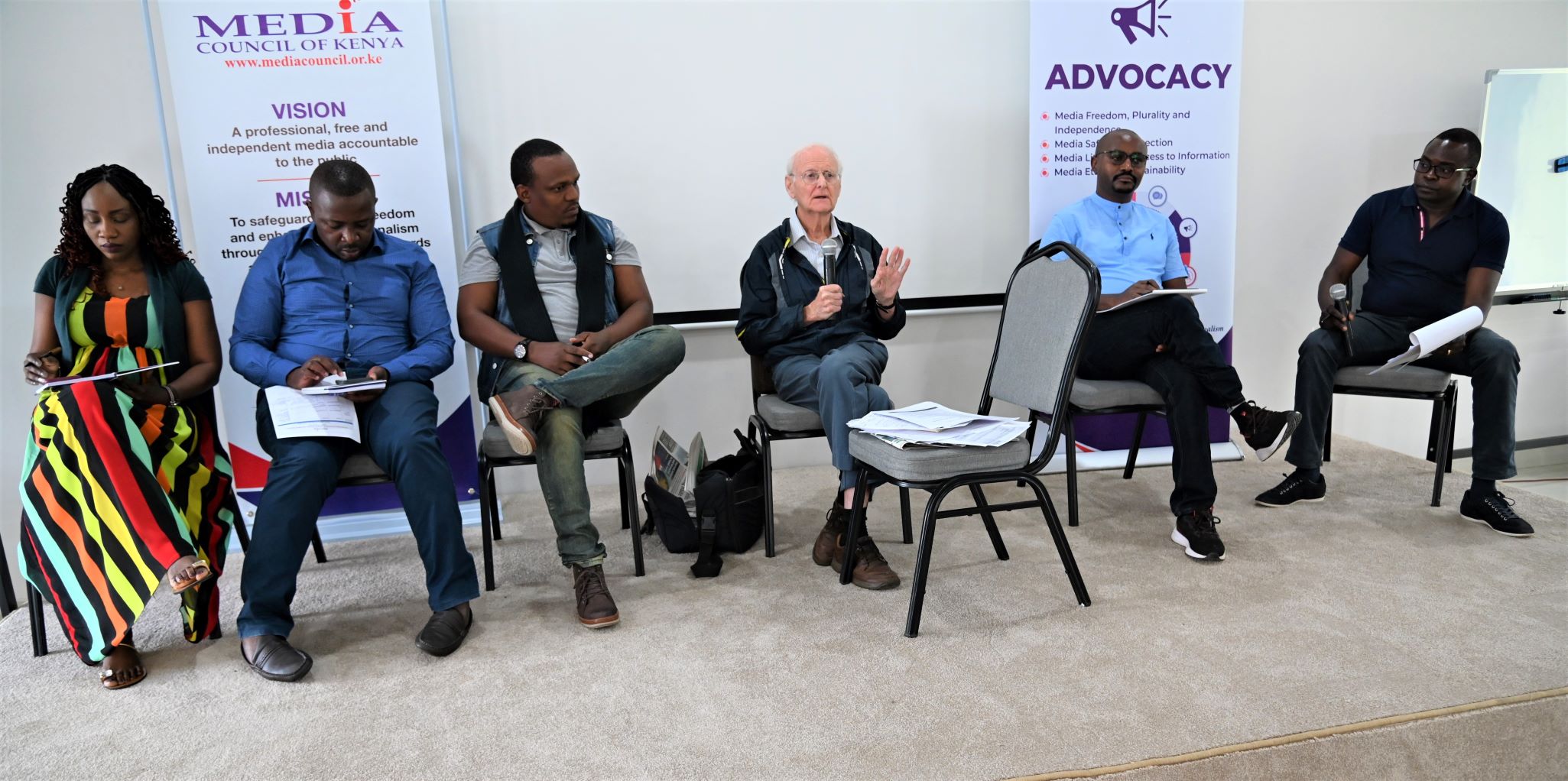
In our pursuit to foster an environment for increased synergies between the various players in the media industry to enhance quality of information and defining issues forming part of the election agenda, we hosted a roundtable on political opinion polling and media framing for editors, pollsters and representatives of political parties on Saturday 11th June in Naivasha.
The meeting is part of the Council’s ongoing interventions to promote responsible and professional media coverage of the 2022 General Election including through enhancing access to information from the multiple players involved in the process.
The Council is intent on providing forums for knowledge and information on matters related to the General Election as a way of creating trust, networks and understanding amongst the various institutions involved in ensuring a free, fair, and acceptable election.
MCK CEO Mr David Omwoyo told the meeting that opinion polls are a great source of information thus enhancing debate on the election agenda.
“The Council has fostered an environment for increased synergies between the various players; Collaboration between Editors, and political parties enhances the quality of information and framing of issues forming part of the election agenda.”
He challenged media houses to scrutinise the quality of opinion polls before disseminating: “The manner in which the media interprets, and frames polls impacts consumption and decision making among the electorate”.
Media Council of Kenya Director for Media Training and Development Mr Victor Bwire noted that being an integral part of the elections process, opinion polls stimulate debate especially when the results are carried by the media and framed in a manner that influences voting behavior, intentions, and leadership preference.
“Following the recognition of the role and place of opinion polls in the Kenyan election processes just like in the rest of the world, the country enacted the Publication of Electoral Opinion Polls Act of 2012 that provides framework including demographics, ownership, funding, and sampling” said Mr Bwire.
The discussion featured three main topics: The role of opinion polls in election agenda setting, media framing of opinion polls and information integrity and the role of political parties.
Editors raised various challenges in coverage of political opinion including quality, proliferation and the motives of publication of such polls.
“Do opinion polls abide by the provisions of the Opinion Polls Act? Media is in a critical stage where they need to ensure whenever they are reporting on findings from opinion polls, they ensure it is democratic and independent,” said NTV Planning and Research Editor and MCK Council Member Ms Roselyne Obala.
“One of the challenges that we have as media is the high frequency of opinion polls, opinion polls as a subject of news are also highly perishable in this era of technology, the print media often has challenges keeping this in the headlines long after the digital media has picked them,” said The People Daily Managing Editor Mr Mbugua Ng'ang'a.
Raila Odinga Presidential Campaign Press Secretary Mr Dennis Onsarigo urged the media to go beyond perception polls and delve into the real issues shaping election campaigns.
Pollsters at the meeting sought to exonerate themselves from blame when it came to the quality of polls.
“Any opinion poll funded by a political candidate, or a party is usually handed over to the sponsors for use, they are never released to the media. We also fund 90 percent of our polls”, noted Mr Samuel Muthoka from IPSOS.
On information integrity, Media Complaints Commissioner Mr Henry Maina led the panel in dissecting the role of political parties in ensuring availability of credible information for the media in the era of misinformation and propaganda.